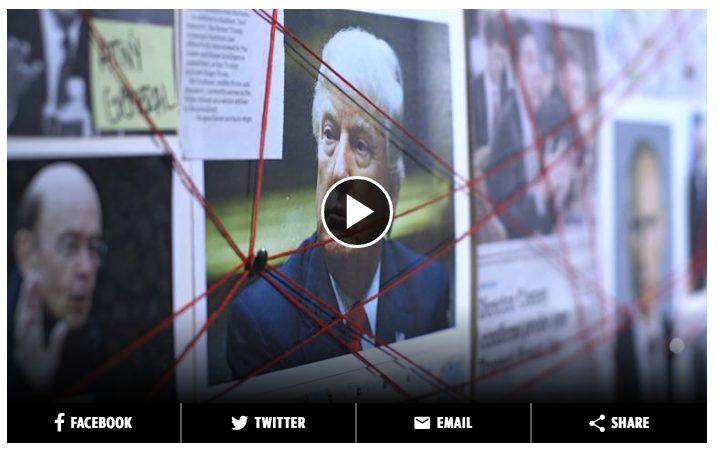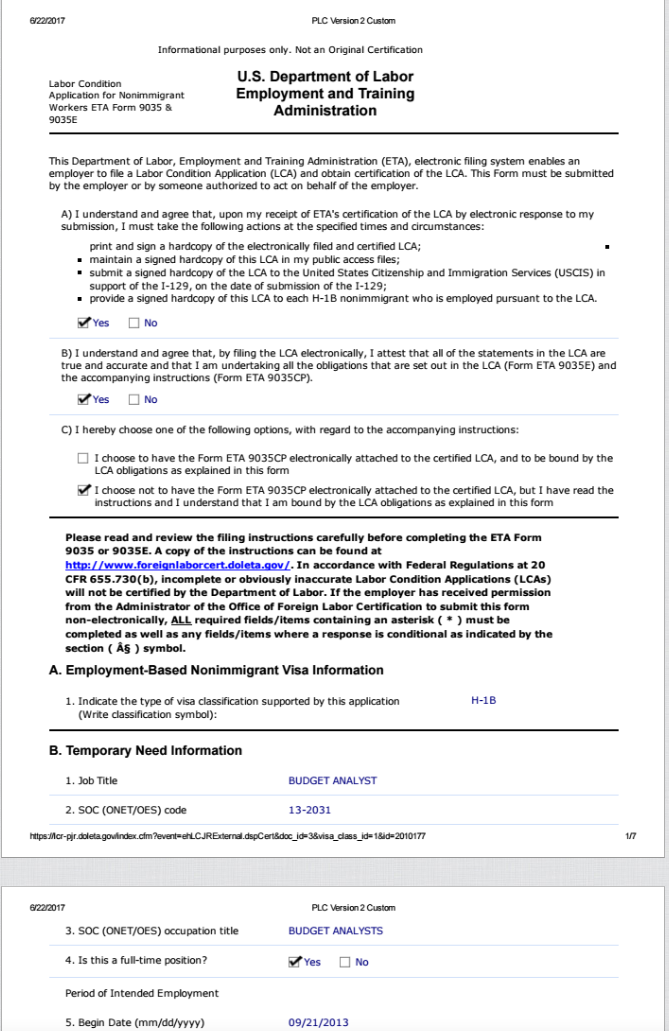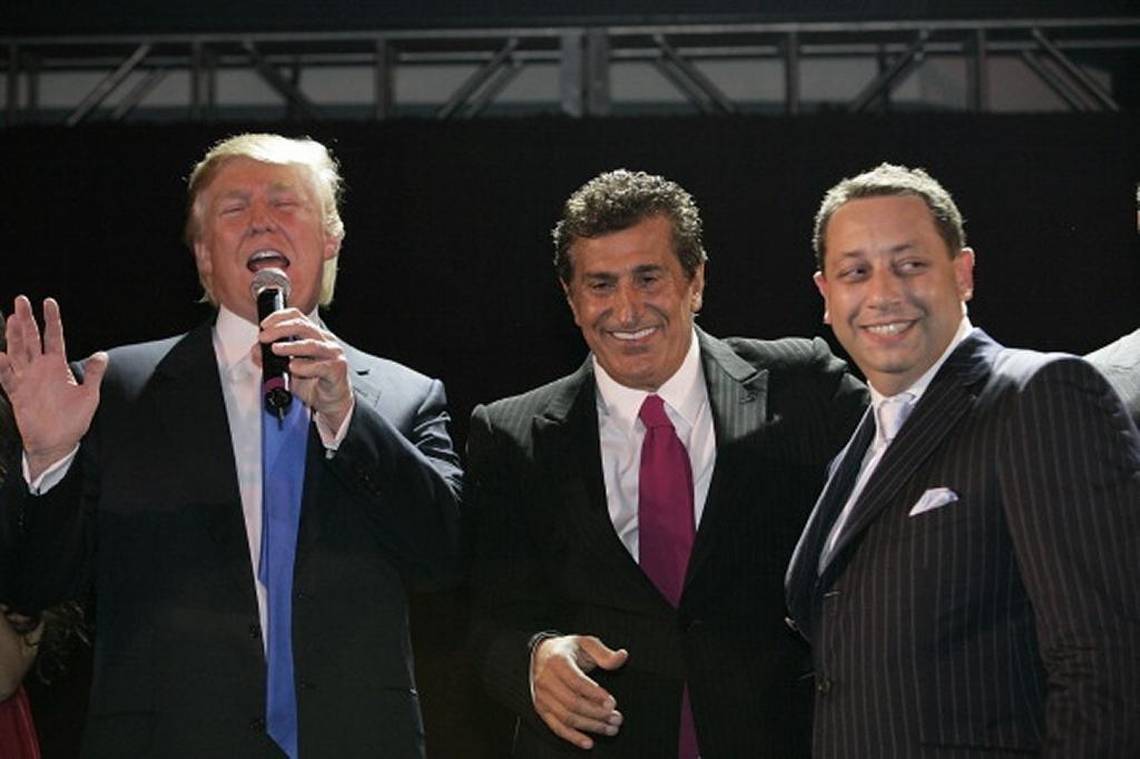 Two former associates of Donald Trump helped a family of wealthy Kazakh fugitives make extensive investments in the United States, some aimed at helping family members obtain legal residency here, a McClatchy investigation shows.
Two former associates of Donald Trump helped a family of wealthy Kazakh fugitives make extensive investments in the United States, some aimed at helping family members obtain legal residency here, a McClatchy investigation shows.
Felix Sater, an ex-con and one-time senior adviser in the Trump Organization, helped the Trump family scout deals in Russia. He led an effort that began in 2012 to assist the stepchildren of Viktor Khrapunov, who that year had been placed on an international detention request list by the global police agency Interpol.
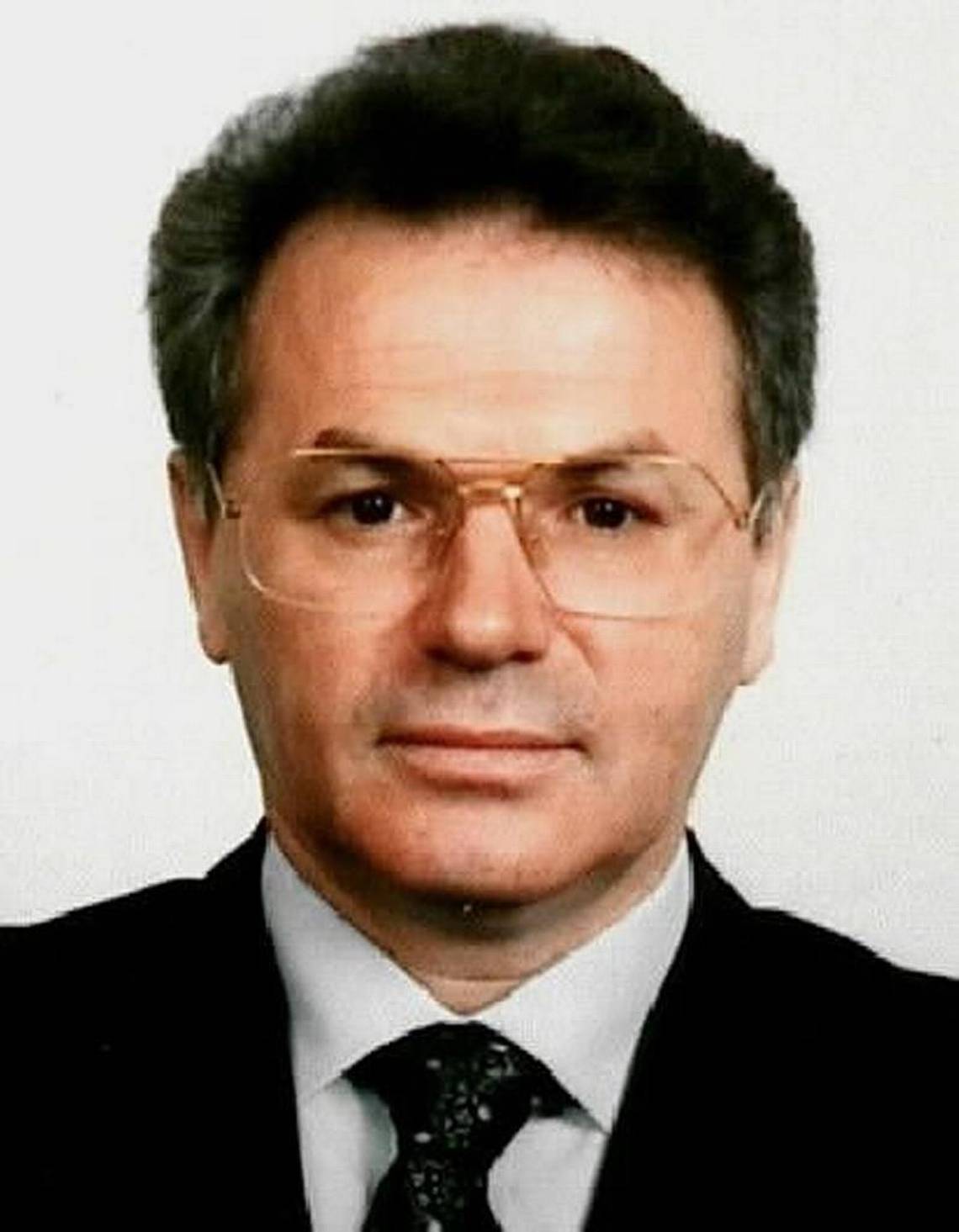
Former Kazakh Energy Minister Viktor Khrapunov, shown in this photo from an Interpol notice in 2012, faces civil lawsuits in the United States alleging that he and his family laundered stolen money through property in the United States and elsewhere.
Interpol
Khrapunov is the former Kazakh energy minister and ex-mayor of Almaty, that nation’s most populous city. He fled to Switzerland a decade ago, after Kazakhstan’s leaders accused him and his wife of stealing government funds. They are now accused in civil lawsuits of laundering money through luxury properties, including Trump-branded condos in the Soho neighborhood New York.
McClatchy’s probe reveals that with the help of Sater and his then-business associate Daniel Ridloff, also formerly affiliated with the Trump Organization, the Khrapunov family invested millions in a short-lived company that sought to place biometrics machines in airports across the country.
The real aim of Khrapunov’s investment was obtaining US residency for at least one member of the family; the company submitted, with the help of the onetime Trump associates, at least three requests to obtain visas for foreign workers.
The McClatchy investigation reveals a deeper relationship than previously known between the former Trump Organization figures and the fugitive Khrapunovs — underscoring how little is known about many of those involved with the Trump Organization.
There is no evidence that Trump himself participated in the courting of the Khrapunovs, but the affair sheds light on the often murky activities of the associates with whom he did deals at home and abroad.
What Ties?
On paper, Donald Trump’s business relationship with Sater ended almost a decade ago. But earlier this year, Sater re-entered Trump’s orbit when he and Michael D. Cohen, one of Trump’s personal lawyers, were involved with a Ukraine-Russia peace proposal that was presented to Michael Flynn, then Trump’s national security advisor.
Sater, whose LinkedIn profile lists him as a senior adviser to Trump in 2010 and 2011, also gave more than $10,000 to Trump’s presidential campaign and a joint Trump-Republican National Committee fund in 2016, and at least $6,000 this year, according to Federal Election Commission records.
The web connecting the Trump administration to Russia
From Secretary of State Rex Tillerson to former campaign director Paul Manafort, President Donald Trump's allies have business and personal connections to Russia. As Congress and the FBI look into Russia's involvement with the 2016 election, those connections are increasingly under a microscope.
Natalie Fertig and Patrick Gleason McClatchy
This as Bloomberg reported Thursday that Trump Soho in New York, where the Khrapunovs invested, were among several Trump businesses being looked at by former FBI Director Robert Mueller in his probe of possible collusion between Russia and the Trump campaign in 2016.
“Do not know,” said John M. Dowd, an outside lawyer for Trump, said of the report in response to questions from McClatchy.
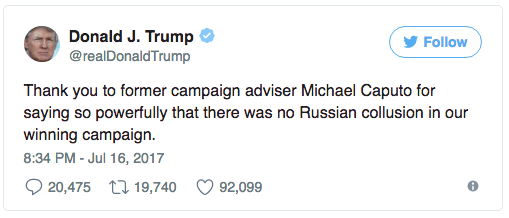
Several key people in Trump’s orbit did business with the Kazakh clan, including the law firm of Trump campaign surrogate Rudy Giuliani and the Bayrock Group, which developed Trump-branded projects in New York, Florida and Arizona and was founded by Tevik Arif, a politically-connected former Soviet official from Kazakhstan.
Lincoln Mitchell, a political consultant who specializes in Russia and its neighboring countries, said virtually any investment from Kazakhstan warrants scrutiny.
"It would be hard to imagine getting Kazakh investment that wasn't close to the ruling family," Mitchell said in a telephone interview from the former Soviet republic of Georgia.
Nursultan Nazarbayev has ruled resources-rich Kazakhstan since 1989, placing his children and their spouses in top government posts. Some of his family assets have been frozen in Switzerland, and a U.S. Justice Department settlement in 2015 spotlighted how bribes paid to senior Kazakh officials ended up in offshore accounts belonging to the Kazakh government.
Both Sater and Ridloff had worked for Bayrock before joining the Trump Organization, Sater being one of its managing partners. Later, the two men facilitated the purchase in 2013 of three condos in the Trump SoHo for $3.1 million by companies tied to the Khrapunov children, Ilyas Khrapunov and Elvira Kudryashova.
In 2012 and 2013 alone, Sater and Ridloff worked with the Khrapunovs on more than $40 million in real estate and investment deals. All came after Kazakhstan added Viktor to the Interpol wanted list in February 2012.
Later, the former Trump associates and their Kazakh investors appeared to have a falling out, becoming mired in acrimonious lawsuits that ended in secret sealed settlements. Yet their business relationship appears to have continued after the settlements, and they continue to maintain a friendship via social media.
Viktor Khrapunov’s wife, Leila, would be added to the Interpol wanted list later in 2012, and stepson Ilyas was added in May 2014.
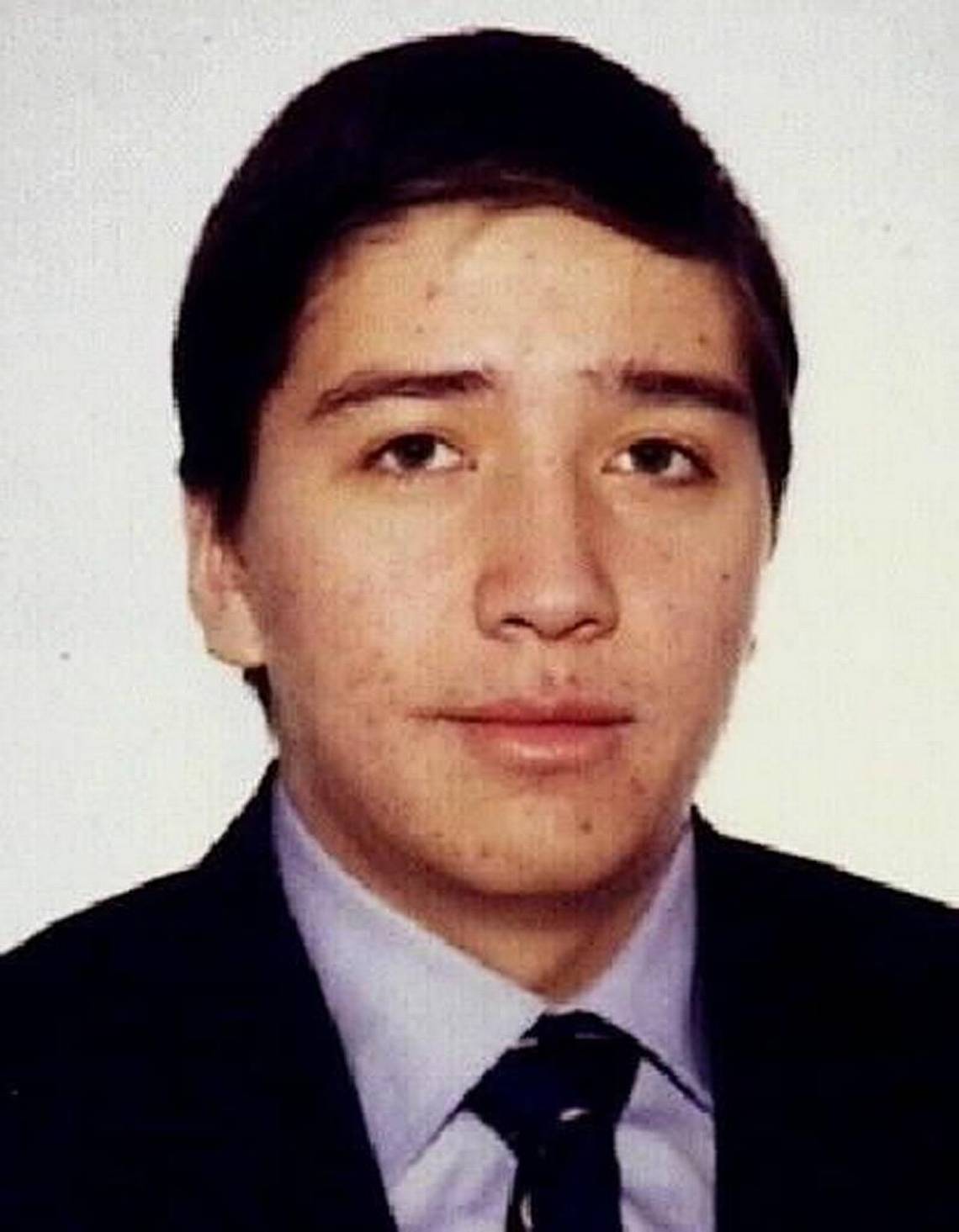
Ilyas Khrapunov, shown in a photo from an Interpol notice, faces civil lawsuits alleging that he and his father, Viktor, a former energy minister and mayor in Kazakhstan, laundered stolen money through property in the United States and elsewhere.
Interpol
The Khrapunovs – who declined to answer detailed questions from McClatchy — maintain that they are the victims of political persecution by the despotic Nazarbayev, who once offered Viktor the post of prime minister before their falling out.
“This is about a dictator trying to silence his political opponents,” Marc Comina, a Khrapunov family spokesman in Switzerland, said in an emailed statement. “Kazakhstan is using the legal systems of Western countries to harass, wear down and destroy political opponents.”
From Almaty to the Big Apple
On the surface, a multimillion dollar investment by the Khrapunovs in a New York-based health technology company would appear to make little sense.
World Health Networks was formed from the ashes of a failed firm that had created health monitoring kiosks placed in pharmacies. The new company aimed to put similar devices in airports across the world, but first it needed capital.
Enter Sater. He was representing the Khrapunovs, who were looking for US investments, and was introduced to executives of World Health Networks through an intermediary who attended the same synagogue on Long Island, according to a person with intimate knowledge of the deal.
Company executives made a pitch to the Khrapunovs in April 2012, according to documents reviewed by McClatchy, and court documents show that the money started flowing into the New York firm soon after.
World Health Network’s business model evolved over the course of its short existence, from an early plan to attract sponsorships from health insurance companies to a later plan to sell advertising space on the machines.
“It was definitely a real company,” said Ken Williams, who helped develop the firm and sat on its board.
Sater installed Ridloff as the company’s chief operating officer, according to former employees who demanded anonymity because of several ongoing lawsuits.
Silence and Denials
McClatchy reporters knocked on Sater’s door in wealthy New York suburb of Sands Point on July 17. He declined comment when asked about World Health Networks and other dealings with the Khrapunovs, saying he was late for a golf outing. McClatchy returned later in the day, prompting Sater to email that he’d call police if reporters came back again.
His attorney, Robert S. Wolf, declined to meet with McClatchy a day later when reporters went to his office in Manhattan’s Chrysler Building seeking comment.
A Port Washington address Sater has listed multiple times as his place of business turned out to be a UPS store.
“He comes in here once in a blue moon,” said Nagasar Lachman, owner of the store.
This much is known: Ridloff submitted three visa applications for highly skilled workers on the company’s behalf between March 2013 and March 2014, all seeking to hire foreign budget analysts.
Stopped on the street as he left his Manhattan office, Ridloff confirmed to McClatchy that the investment by the Khrapunovs – ultimately $6 million, according to court records -- was aimed at securing Kudryashova, Viktor’s stepdaughter, legal residence in the United States.
The company partnered with the Swiss-based World Heart Federation and managed to place its machines in several airports, including Detroit, San Jose and Sacramento, Calif. But former employees confirmed its revenue couldn’t keep pace with expenses.
The company spent liberally on international travel and a bloated payroll, they said, and it folded soon after funding from the Khrapunovs dried up in late 2014.
It’s unclear the visas were ever issued, or whether the Khrapunovs obtained legal U.S. residence through any other means. The State Department and Homeland Security did not immediately provide documents requested under the Freedom of Information Act about World Health Networks’ visa applications.
Elvira Kudryashova listed a Newport Beach, Calif., address on a 2016 incorporation document for an upscale toy store she owned called Anthill shopNplay. The property in Newport Beach was sold later the same year.
Mall Brawl
Sater and Ridloff also worked with the Khrapunovs on nearly $35 million in U.S. real estate purchases during the same time period.
They started with several acquisitions in N.Y., including the three condos in the Trump SoHo for which they spent $3.1 million.
Then in June 2013, Sater and Ridloff helped a Khrapunov-linked company purchase the debt on the Tri-County Mall in the Cincinnati suburbs for $30 million. A month later, they sold their interest in the mall for $45 million to a U.S. company whose website lists Neil Bush, son of former President George H. W. Bush, on its board of directors.
Sater and Ridloff were owed a $1.6 million commission for their work arranging the Ohio deal, but a lawsuit filed in December 2013 alleged that they took nearly the entire $45 payment.
The lawsuit was settled, remarkably, in one day’s time, on Dec. 20, 2013, and the terms are secret. That might have been expected to be the end of the business relationship between the Khrapunovs and Sater.
But documents and social media suggest a seemingly amicable alliance extending beyond the 2013 lawsuit.
On Feb. 19, 2014 – two months after the lawsuit was filed – Ridloff submitted the third, final visa application on behalf of World Health Networks.
Ridloff incorporated World Health Networks in Kansas in March 2014, 10 days before the company was approved to enter into a contract with the Kansas City Airport in Missouri.
A Khrapunov-linked company made payments of at least $250,000 to World Health Networks in 2014, according to court records in a U.S. civil lawsuit brought against the family, with a payment of $80,000 made in September of 2014.
And Ridloff’s Facebook page shows that he is currently “friends” with Ilyas Khrapunov – years after the lawsuit alleging Sater helped orchestrate a multi-million dollar heist from a Khrapunov-connected company.
Bayrock Origins
Sater first began working with Trump while the Russian emigre was at Bayrock, which developed projects with Trump in Phoenix and Fort Lauderdale in addition to the Trump SoHo in New York.
Trump had given Bayrock exclusive rights in 2005 to develop a Trump International Hotel and Tower in Moscow. Court documents show Sater claims to have led a scouting trip in Russia with Donald Trump Jr. and Ivanka Trump in 2006.
Sater and Ridloff appear to have first become acquainted with the Khrapunovs during their time at Bayrock; in 2007 and 2008, companies tied to the Kazakh family entered into several deals with Bayrock, including a joint energy extraction venture in Kazakhstan called Kazbay and the development of a luxury building in Switzerland overlooking Lake Geneva.
Bracewell & Giuliani, the law-firm co-founded by former New York City Mayor and Trump surrogate Rudolph Giuliani, was retained to handle legal matters for the joint Bayrock-Khrapunov energy venture, according to documents obtained by Dutch broadcaster Zembla. Giuliani left the partnership in 2016 and Bracewell officials did not respond to numerous calls.
The Giuliani law firm’s Kazakh office was also behind the placement of more than $1 billion in corporate debt for Bank Turanalem, or BTA. Its top shareholder was Mukhtar Ablyazov, another fugitive Kazakh, whose daughter is married to Ilyas Khrapunov.
Kazakhstan’s president ordered BTA seized in 2009 and soon after accused Ablyazov of absconding with billions. Lawsuits in Los Angeles, New York and across the globe accuse of the Khrapunovs of co-mingling funds with Ablyazov and laundering the money, which is also the basis for the Interpol request by Kazakhstan. Lawyers for both the Khrapunovs and Ablyazovs deny this.
The Kazbay deal would ultimately fail and the Bayrock Group imploded soon after, in part as revelations emerged about Sater’s past. He had done prison time in the mid-1990s after being convicted of stabbing a man in the face with a broken margarita glass during a bar brawl. Later, Sater pleaded guilty to racketeering in a securities fraud case but avoided prison by becoming a U.S. government informant.
Those revelations didn’t end Sater’s relationship with Trump – he and Ridloff both worked as advisers to the Trump Organization in 2010.
While Sater has said he was scouting potential Russia projects for the Trump Organization as late as 2015, Trump has played down their relationship.
“If he were sitting in the room right now, I really wouldn’t know what he looked like,” Trump said in a Florida deposition in 2013.
Kevin G. Hall: 202-383-6038, @KevinGHall
Ben Wieder: 202-383-6125, @benbwieder
Correction: This story has been updated to correct the country of origin for broadcaster Zembla.
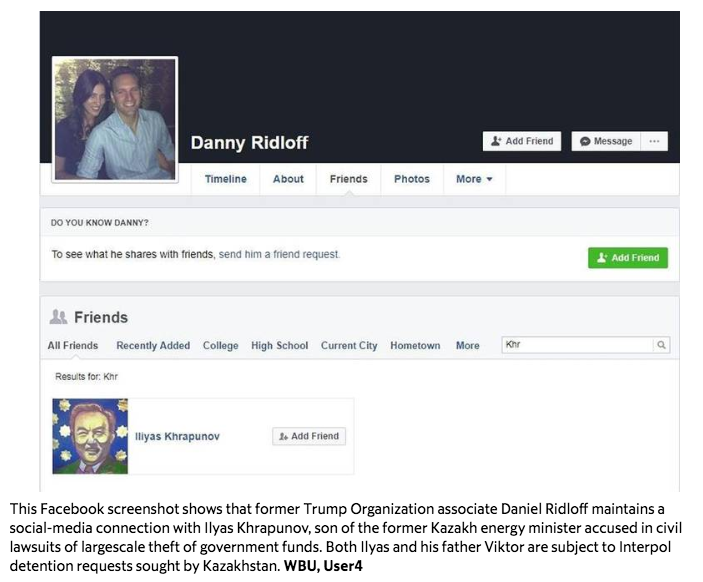
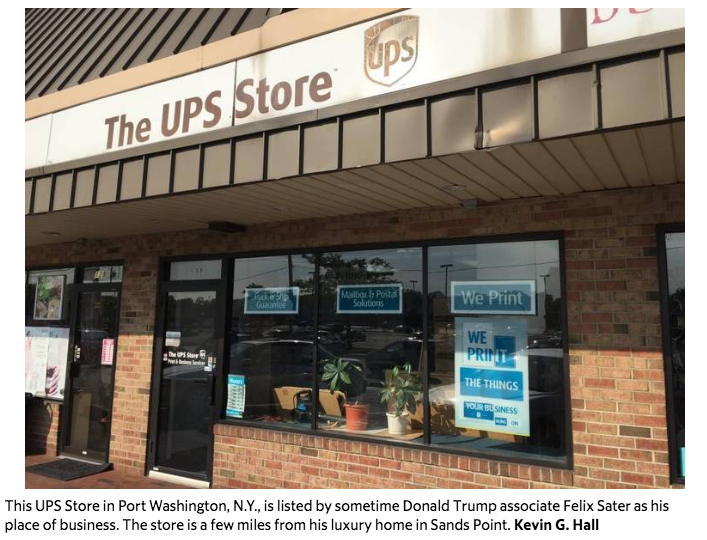
www.mcclatchydc.com, 21.07.2017


